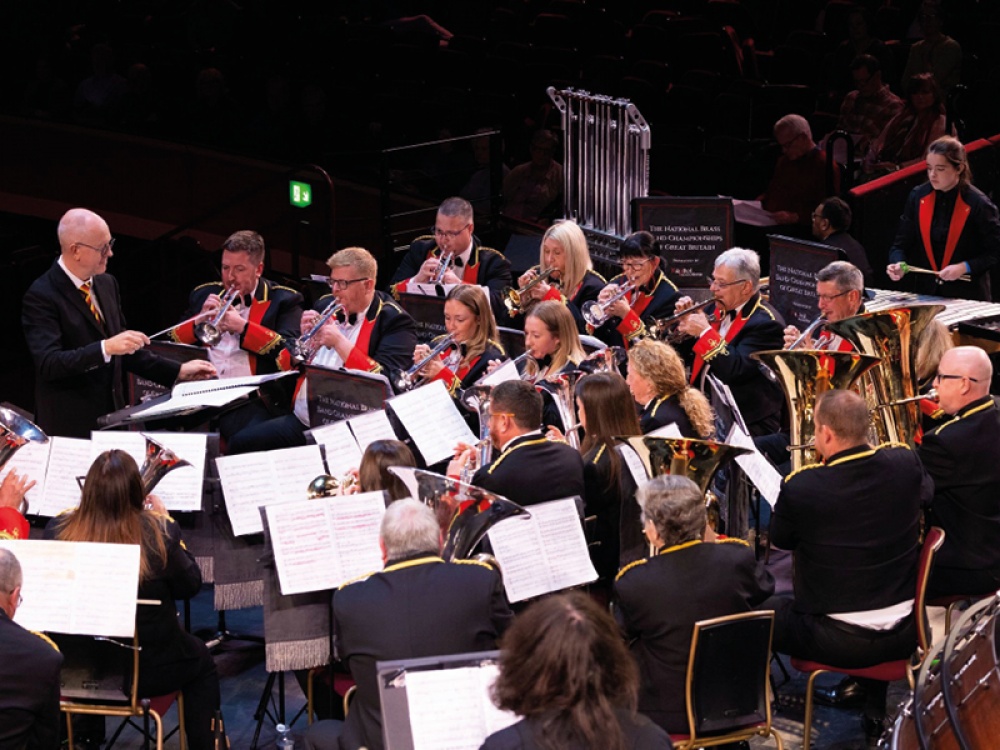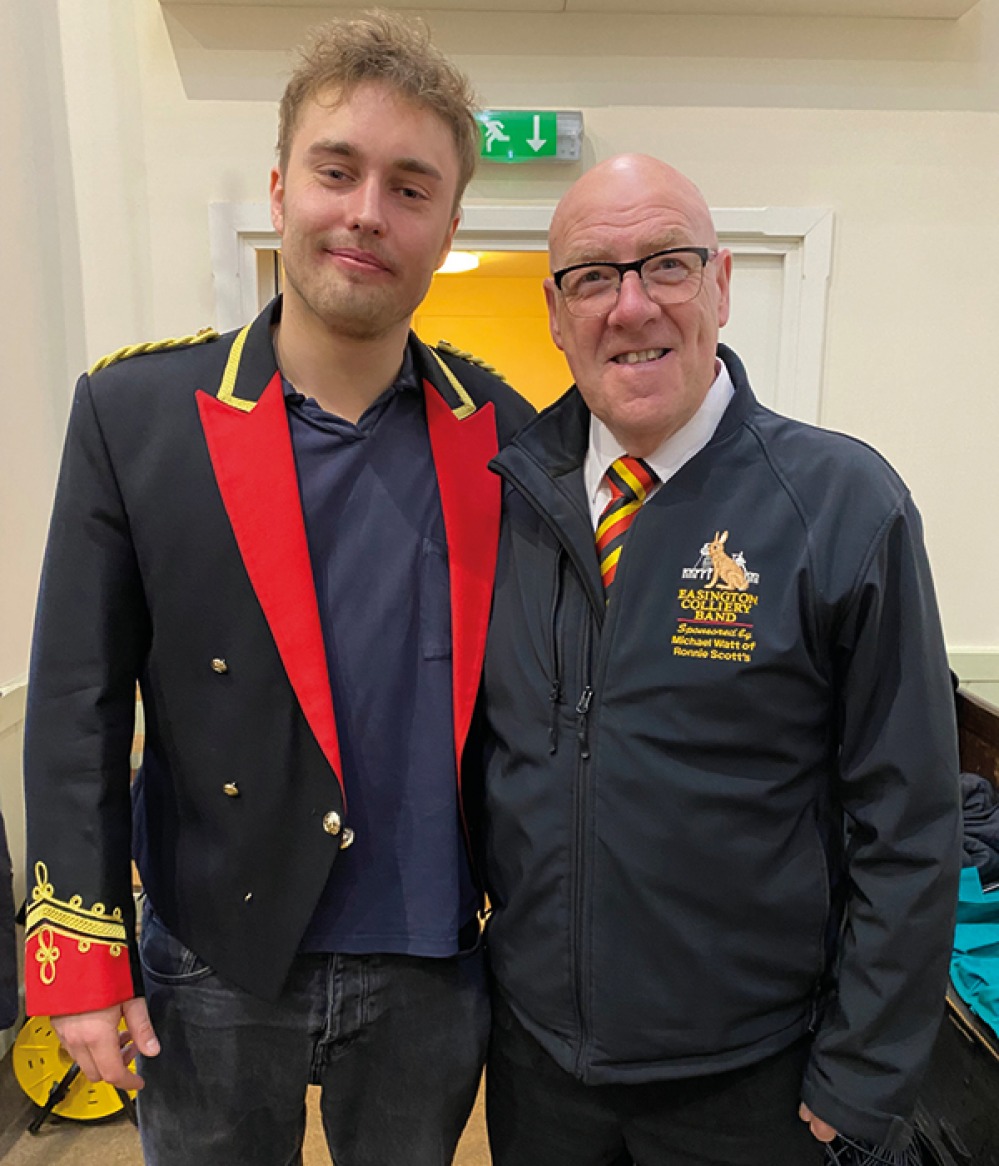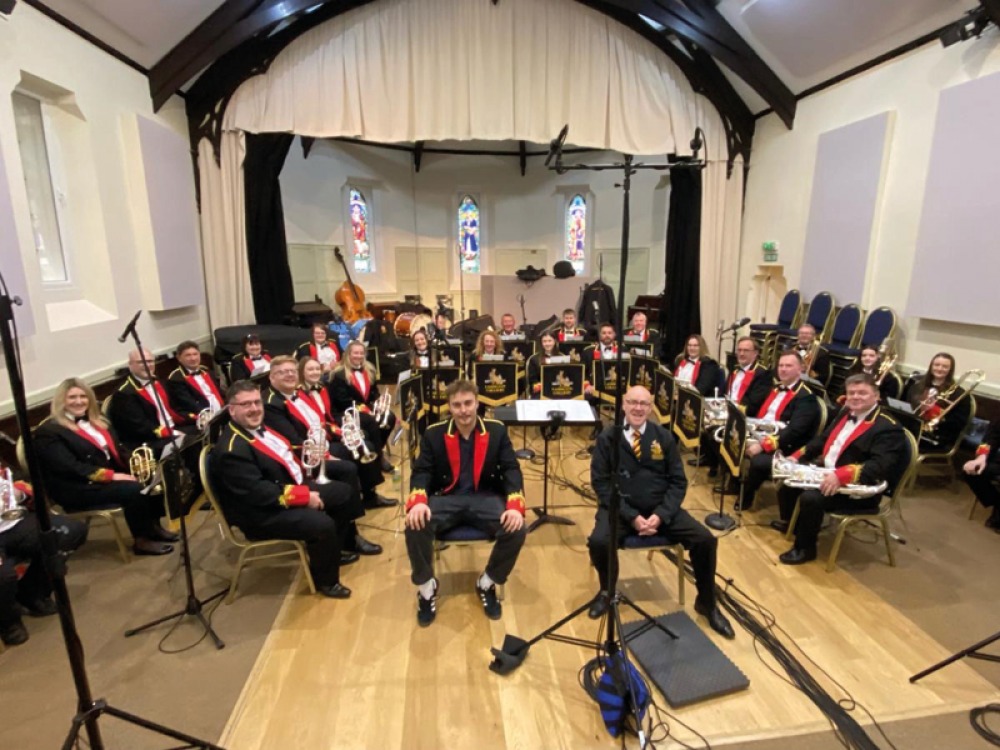Meet the Local Colliery Band Featured on Sam Fender's Album

For more than 100 years Easington Colliery Band have represented the North East's coal mining heritage with music
named North of England Champions for the first time,
they have plenty to celebrate.
Peter Lawson is the secretary of Easington Colliery Band and has been for almost 35 years, but he’s actually been involved in the band since he was 11 years old. The band was founded in 1915 and played for community activities such as dances, concerts, and competitions, and really flourished at this time.
During the war, the Easington Colliery Youth Band became the National Fire Service Band, which then became the Easington Public Band in 1945. ‘Both bands [the Public Band and the Colliery Youth Band] amalgamated in 1956, just after the big mining disaster in 1951 where 83 men lost their lives at Easington Colliery,’ says Peter. ‘The band played at the funerals for every man who died, over a fortnightly period. The pit closed in 1993.
‘I worked as an underground fitter on the coalface and it was the band that got me my apprenticeship,’ he continues. ‘Each person who worked at the colliery paid a levy towards the upkeep of the band but when the pit closed, the band went to zero income and were virtually self-supporting. Through the hard work of concerts, raffles and competitions, the band kept itself going.’

It's still based in Easington Colliery today. ‘We’re sponsored by Michael Watt who is co-owner of Ronnie Scott's Jazz Club in London. He was the main sponsor that kept the Durham Miner’s Gala going over a number of years,’ explains Peter. ‘He has a working-class background and liked the idea of helping a local colliery band. Luckily, the band is really thriving and we’re going through probably the best time the band has ever had.’
Easington Colliery Band were proud to feature on North Shields-born Sam Fender’s latest album, People Watching. Sam was given one of the band's concert uniforms and he wore it all day. ‘We had to keep it a secret,’ laughs Peter. ‘Sam asked for a local colliery band (local to him) because of his grandparents’ history. His grandmother had dementia and her family came from a colliery background. He set the piece, Remember My Name, up with a colliery connection. The music that was arranged for us has a bit of Gresford: The Miners' Hymn going through it, and the band were thrilled to bits to be offered this opportunity. That was two years ago, but it was only recently that we heard back asking if we wanted to be part of a video because he wanted to bring it out as a single. Sam’s now going on tour and we’re hoping we can get involved in some way with that, either locally or further afield.’
This summer is looking busy for the band, who are looking forward to Durham Miners' Gala which returns on 12th July. At Durham Brass Festival on 18th July, along with Simon Armitage and LYR, they will present Firm As A Rock We Stand reflecting the history of Durham’s Category D villages. ‘It’ll be in Redhills Durham Miners Hall which is the Durham Miners' Association headquarters and has been officially revamped with a large grant to turn it into a big heritage centre,’ says Peter. ‘This is about its mining background, and what it represents.
‘We also have a little project going at the moment where we’re going around to local schools who have brass instruments and there’s three primary schools and two senior schools who will take part in a concert,’ says Peter. ‘They have their own particular levels and their own music that they’re practicing. As part of the Brass Festival some of the school children will be with us playing outdoors. It would be nice to have more school children able to learn brass and filter into local brass bands.’ On 19th July the band will perform their own concert at Alnwick Playhouse which they’re calling a ‘Brass Spectacular’, ‘which we’re looking forward to,’ Peter adds.

Last year the band won the North of England Regional Championships for the first time in its history, playing Variations on an Enigma. ‘We’re really proud of that,’ Peter admits. Recently the band came fourth in the Senior Trophy which will see it promoted to the Senior Cup for 2026. ‘We’re a senior band which works in divisions, sort of like football,’ Peter explains, ‘and we’re in what would be classed as the premier division so to bring players in, they’ve got to be at a certain standard. We are trying to get a junior or youth band together so that we’ve got an influx of players when they reach a particular standard – to keep the brass band movement going. We’re forever looking for grants to buy instruments and to bring in a teacher who has the time to teach new students who are willing to learn these instruments and the music. Even if you’re learning music for a brass band, you can still use that theory to play a violin, cello, guitars and pianos.’
Keeping brass band music alive is important to Peter and the band. ‘For me, it’s our Northern heritage,’ he says. ‘In its heyday there were hundreds of collieries in Durham alone. Each one had a brass band and it was part of our heritage. There were so many, but because of the colliery closures a lot of the bands no longer exist. That’s why it’s important. It’s a working class, Northern heritage thing. Although Easington doesn’t have a colliery, the people of Easington have taken the band to their hearts. We’ve kept the name Easington Colliery Band and it’s a massive thing to still represent the people from the area.’







